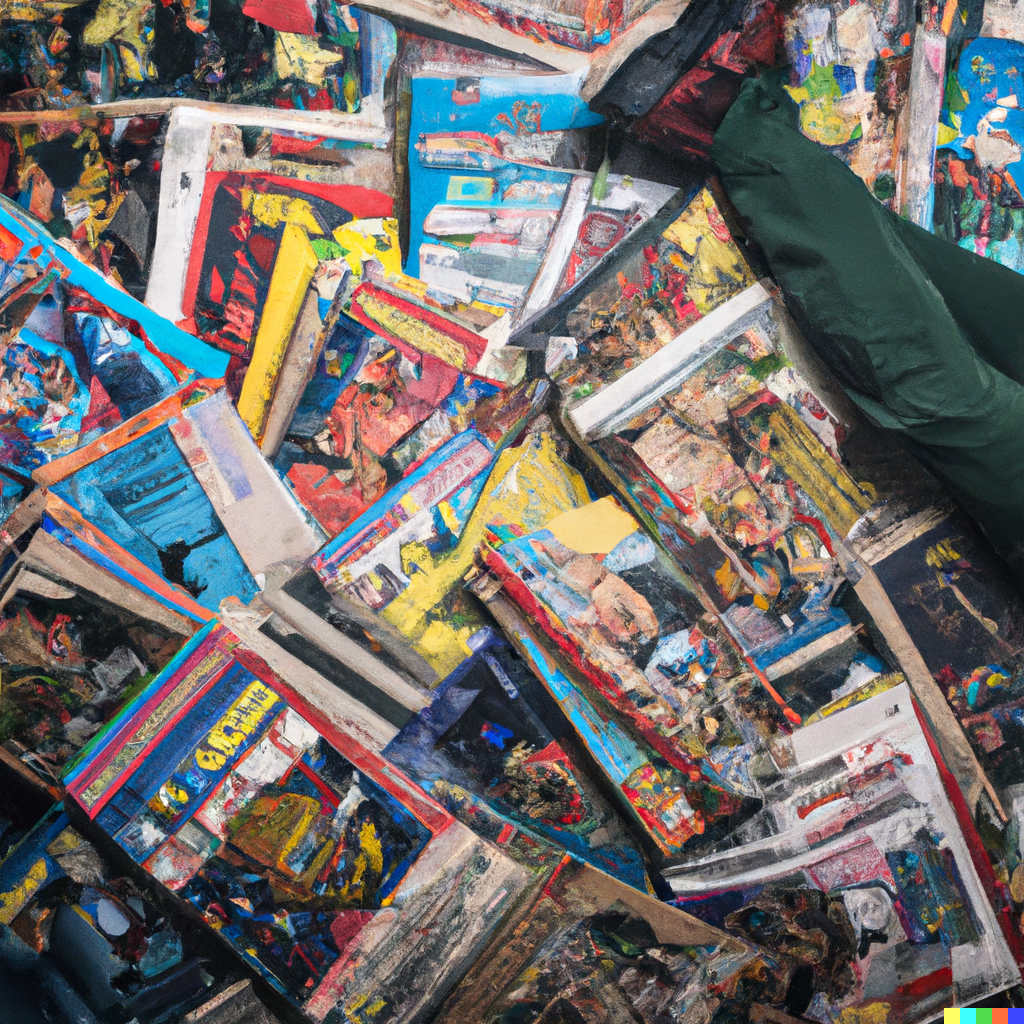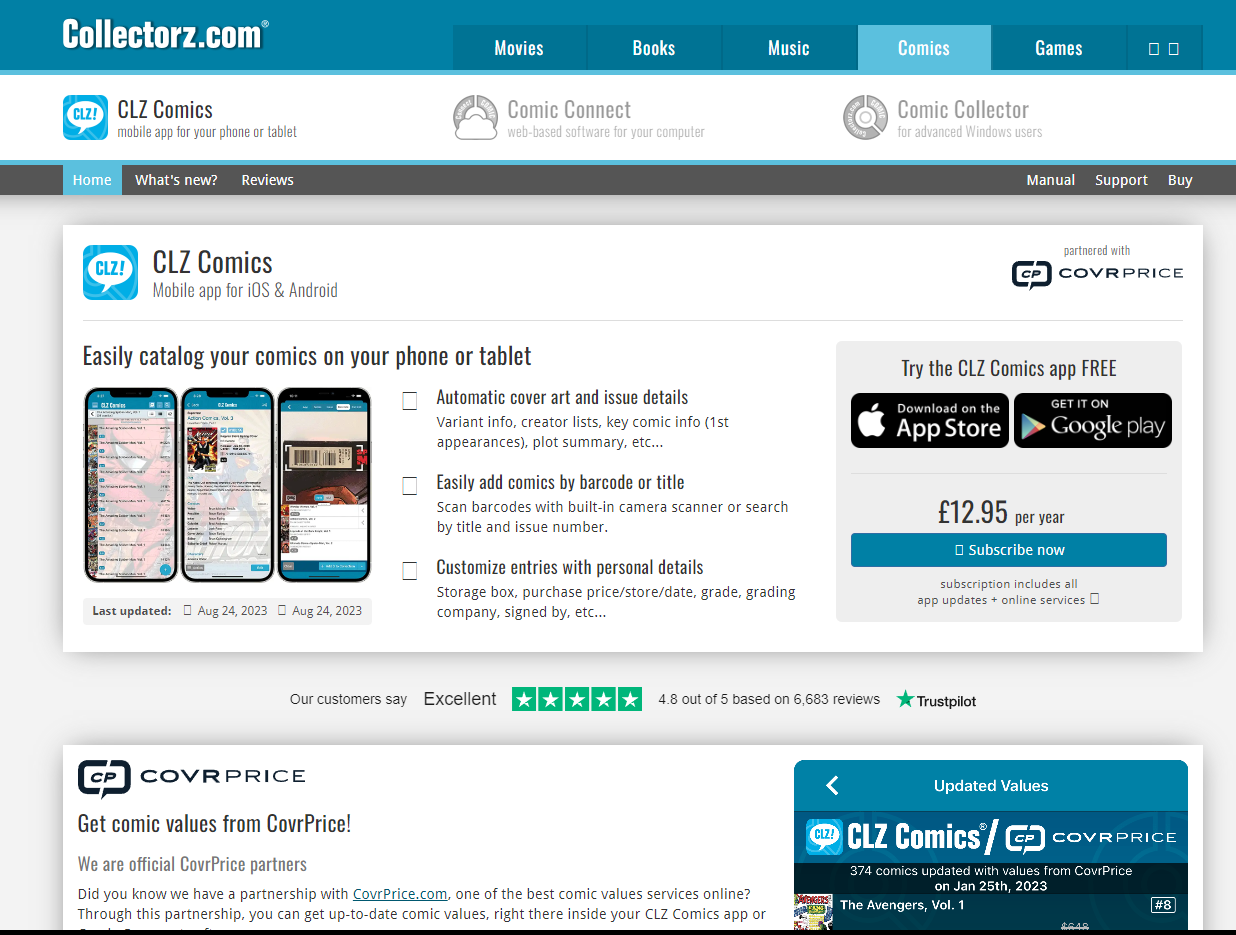Right, so you've found your way here, which means you're either already an established collector, or you may have just stumbled upon your new passion. If it's the prior, then hop along now lad, this shit ain't for you... But if it's the latter, then, well. Welcome home.
Now, lets break it down into easy to consume segments. Firstly, ask yourself why you want to collect? Is it for value? Nostalgia? Perhaps investment for your children's future, or the fact that you're an avid comic book reader, or simply, because you want to? There is no wrong answer to this question, much to the disgust of the elitists or the purists of the collector's community. Everyone collects for their own reason, and you should never let anyone tell you different.
But what is important, is identifying this factor for yourself, or trust me. You're going to initially waste a lot of money.
Value collectors
Value collectors collect with the intent to hold, and sell. It may be a few days, a week, months, or even years, but that book that they buy is bought with one purpose, and one purpose only. To make money. I myself, am a value collector - I have a massive personal collection, filled with valuable books, that I'm just waiting for the right time to sell. I may have some of them in twenty years, some might be gone tomorrow, but I have no personal attachment to any of them at all.
So if you feel this matches your collecting style, what is it that you need to know as a value collector?
First and foremost, is what makes a comic book valuable. The answer should be simple, right? Wrong. Firstly, this is the part where most people initially go wrong, and the result of which is a tonne of wasted money. The most commonly assumed answer, and the most commonly wrong one, is that the thing that makes a comic book valuable is age. WRONG. Age can affect value, but more as a multiplier for the most part, but we'll get to that later.
What makes a comic book valuable, are things called key events. Unfortunately this term encompasses, well, just about everything, so it's impossible to nail down an exact definition, as the name is not quite literal. For example, there's the obvious things, such as first appearances of a character, or their cameo appearance, or even their first cover appearance, but then we branch out further, to first solo story of a character, death of character, marriage of a character, first in-costume appearance of a character, first new suit of a character etc etc. Key events don't even have to be linked with a character at all, for example first appearance of a universe, or forgetting in story events altogether, there are things like first artworks by whatever famous artist, or gimmick cover keys, price variant keys, the list is literally endless.
Now that you've identified the key event within your book, the next step, are the multipliers. How old is it? The older, the better (generally), though to put this in perspective - you can grab a book from the 1960s for 50p, because it has no key event, then pick up a book from 3 years ago for £600, with a major key event in it. Then, work out what printing is it? Facsimiles exist of nearly every major (and valuable) issue, which are exact reprints, sometimes with differences so small that seasoned collectors can't recognise them. No, they are not fakes, they are reprints. Another one to look out for, is print run. How many copies of your book exist? the lower the better. Although low print run books do not immediately mean they hold value, combine this with a key event, and BAM. You're in the money. And finally, condition. Condition plays a HUGE factor when it comes to comic books - seen as grading is a useful tool to increase value, though we'll cover grading, when, where, and how, in another blog post, as that's an entire lesson in itself. The points that matter right now, is that high grades, with big keys, combined with a multiplier = money, and this is what you're looking for.
The list of multipliers are as endless as the key events are infinite, taking into account things like error editions, misprints, recalls, and an impossible myriad of other mitigating factors... but luckily, there's a tool that makes this all simple.
Key collector. Key collector is a comprehensive database of EVERY known key event in almost every comic book, plus it also crawls US sales to give you a rough pricing of each comic book on a handy, easy to read display. Best of all? it fits into a tiny little app on your smartphone.
Check it out here.
Plus, to make it even easier, we compile a 'Spec deck' page every month, showcasing the newest issues with the most likely chance of rising in value post release. Check that out here.
Nostalgia collectors / Readers
Now, we go quite literally the opposite way when it comes to the readers. DO NOT WASTE YOUR MONEY ON HIGH VALUE BOOKS, because in this day and age, there is always an alternative. Facsimiles, reprints, digital copies, you name it. It exists. Your best place to pick up books are the online marketplaces, such as eBay, Facebook, and Whatnot (Something that I would highly recommend! In fact, join using this link to get £10 free credit on Whatnot the moment you make your first purchase), where you can pick up super cheap books without paying the resellers premium.
You guys have the added bonus of not having to worry about things like condition, or print version. Get what you want, and get it as cheap as you can. No cover? No problem! A cover does not affect the story!
Plus, as readers - you have your pick of the modern comic word. Cheap, easy to access, and at the tap of your finger your new book can be posted through your door the very next day.
What's next?
The next step is choosing a logging application to record your purchases, and effectively create a database of your collection. My personal recommendation your be Key collector.

















